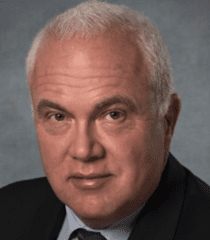
The purpose of this blog is to stimulate thought and discussion about important issues in healthcare. Opinions expressed are those of the author and do not necessarily express the views of CMDA. We encourage you to join the conversation on our website and share your experience, insight and expertise. CMDA has a rigorous and representative process in formulating official positions, which are largely limited to bioethical areas.
Gender
Scientific Evidence Versus Ideology
December 3, 2024
by Steven A. Foley, MD
The American College of Obstetricians and Gynecologists (ACOG) positions itself as a leader in scientific knowledge; however, this commitment seem to falter when it comes to care for transgender patients. Is it because ACOG’s focus is not on scientific evidence but primarily on ideology? Their committee opinion on transgender care is filled with nonscientific assertions.
First, it is important to acknowledge that while free speech allows for expressing opinions, as protected by the First Amendment, statements made by an authoritative organization like ACOG carry significant weight. When such an organization disseminates information that lacks a strong basis in evidence, it undermines trust and responsibility.
ACOG claims transgender care is evidence-based; yet, it fails to substantiate this assertion with reliable sources. For example, the Cass Report from the United Kingdom, which thoroughly evaluated the state of evidence on transgender care, concluded there is insufficient data to establish such treatments as standard care. The report recommends these treatments be offered only in the context of research and with adequate safeguards. This contrasts sharply with current practices in some settings, where treatments are administered without stringent oversight.
Additionally, research such as this study published in 2011 in Clinical Child Psychology and Psychiatry found that approximately 90 percent of individuals with gender dysphoria who receive time and counseling—often focused on addressing adverse childhood experiences—eventually desist in their dysphoria. This evidence suggests numerous cases can be resolved without lifelong medical or surgical interventions. Why is such research overlooked in ACOG’s recommendations?
ACOG also asserts “gender is a social construct,” but they fail to provide any supporting evidence for this claim. How is the organization qualified to make such a definitive sociological statement?
The committee further asserts that gender-affirming therapies are “safe, effective and medically necessary,” again without citing robust evidence. For instance, this study from the Journal of Urology in 2020 found that 50 percent of patients undergoing surgeries related to gender transition experienced complications. These findings challenge the narrative of safety and efficacy. Furthermore, it has been reported some academic institutions avoid discussing such complications at morbidity and mortality conferences. If true, this raises concerns about transparency and accountability in addressing risks.
A critical question arises: where is the evidence to support the claim that adolescents can truly consent to life-altering treatments? Minors under the age of 18 are not permitted to consent for any other medical procedure, yet they are permitted to consent to gender-affirming care. This inconsistency is troubling. For instance, can a young girl placed on testosterone fully understand her pelvis will never develop into a gynecoid shape, potentially affecting future pregnancies?
There are also no long-term studies evaluating the effects of opposite-sex hormone therapy on adolescents. Without sufficient longitudinal data, it is premature for ACOG to assert these therapies are safe in the long-term.
It is also worth noting that the World Professional Association for Transgender Health (WPATH), which informs many of these practices, has been identified as an advocacy group rather than a scientific organization. ACOG, which claims to be a scientific body, risks its credibility by relying on recommendations from such an organization without independent, evidence-based scrutiny.
Ultimately, ACOG appears to prioritize ideology over science in its approach to transgender care. To maintain its reputation as a leader in evidence-based medicine, ACOG should retract its current recommendations and commit to a more rigorous, research-driven evaluation of transgender care.



I agree that transgender treatments should be absolutely banned until adulthood and then only with clear and careful discussion of the procedure and risks and that the treatment is irreversible.
Doctors Protecting Children (website by same name) has good scientifically based information (and data)
Note that UK has banned transgender treatments for children and young adults (news item today in Wall Street J)
Note also in my specialty of orthopaedic surgery there are already several review articles on the adverse effects of these hormonal treatments on growth, muscle, and bone. Patients undergoing hormonal manipulations have increase risks of developing osteoporosis and other metabolic bone disorders. Instead of developing these skeletal problems at an “older age” these patients begin their skeletal decline at very your ages.
Thank you for this article.
Several of us have submitted resolutions to our state medical society to not support/oppose transgender surgeries (“GAS) for youth. It has been met with anger by the ACOG as well as the AAP reps. They offer similar arguments to those mentioned here, as well as the patently false claim that there are higher suicide risks for “nontransitioners” (these data come primarily from online surveys that used the LGBT community to promote distribution – I ask pro-GAS’ers whether they would believe a survey stating that people feel safer with an AR-15 under their bed if it was sponsored by the NRA). They also claim that “the decision is made with the child’s parents” – after they have told the parents they can choose between surgery and suicide for their child). The most worrisome of course is that GAS “affirms” to the individual that they really are not “good enough” as they are – that the way God made them is “wrong” and that their DNA and the physical body of a male or female, that this is a threat to them. It is hard to conceive of a less “affirming” message.
I wonder how we as a Christian community could better message these children/adolescents with the positive message of how valuable and worthy they are as God’s creation – that the Lord made them and loves them as they are, and they have the Christian community to fully affirm their value. Not as society pressures them, not with pressure to be something different than the unique person they are.